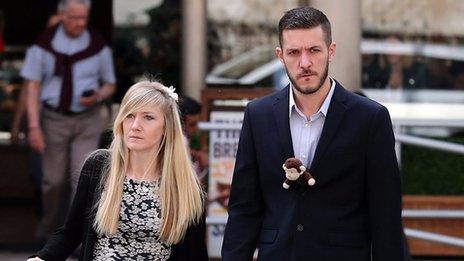Charlie Gard's parents 'hope to use donations to set up charity'
- Published
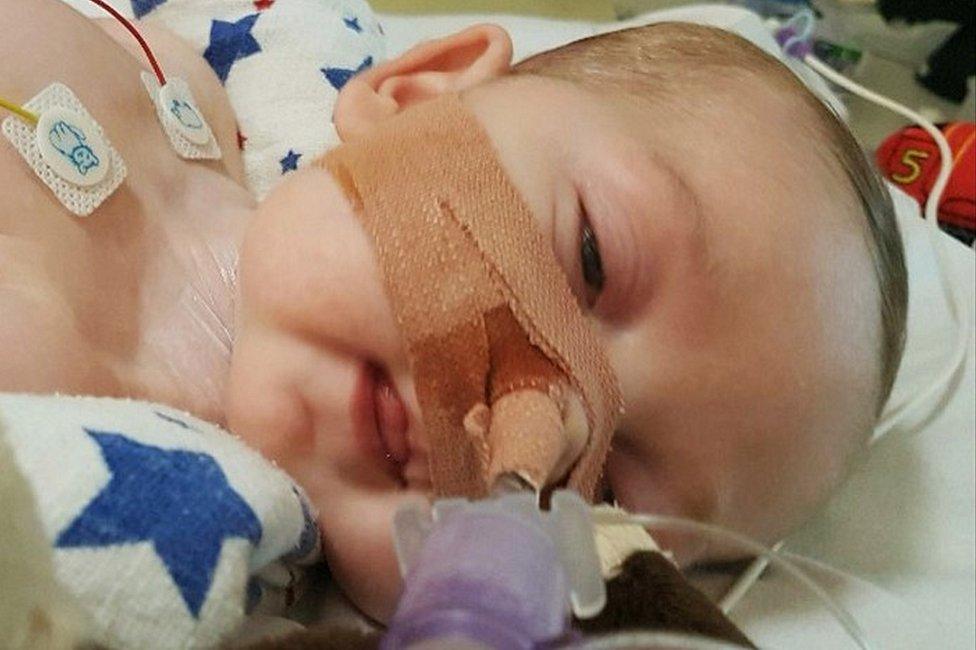
Charlie Gard has been in intensive care since October last year
The mother of Charlie Gard has suggested £1.3m donated by the public for her son to undergo experimental therapy will instead go to charity.
Judges at the European Court of Human Rights have rejected Charlie's parents' plea to intervene in his case.
It means Great Ormond Street can switch off the baby's life support.
Previously his mother Connie Yates wrote on a fundraising website the family would create a charity to combat the condition Charlie suffers from.
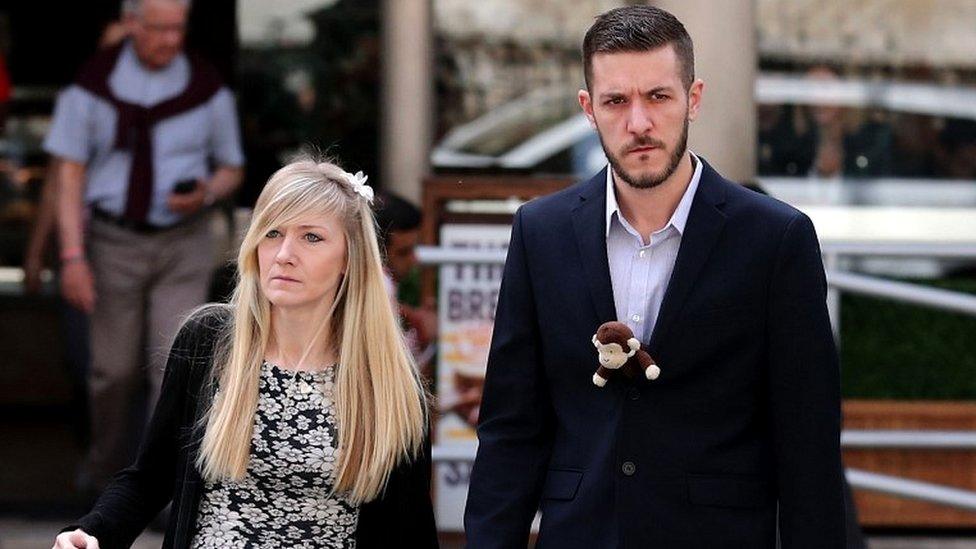
Connie Yates and Chris Gard raised more than £1.3m for treatment in the US
"A few people have asked us what we'll do if we don't win the court case," Ms Yates said in a statement posted on the GoFundMe website used to fundraise for his treatment.
"We'd like to save other babies and children because these medications have been proven to work and we honestly have so much belief in them.
"If Charlie doesn't get this chance, we will make sure that other innocent babies and children will be saved", she said.
The post has since been deleted and GoFundMe said it would discuss with Charlie's parents what should happen to the monies raised.
Well-wishers have continued to donate to the fund since Charlie's parents learned of the judges' final decision on Tuesday.
Great Ormond Street hospital will end life support for Charlie, who suffers from a rare genetic condition and has brain damage, to allow the 10 month old to die with dignity.
It said there would be "no rush" to change Charlie's care at present though as its priority was to support his parents in the next steps.

Charlie Gard: Timeline of parents' legal battle:
3 March 2017: Mr Justice Francis starts to analyse the case at a hearing in the Family Division of the High Court in London
11 April: Mr Justice Francis says doctors can stop providing life-support treatment
3 May: Charlie's parents ask Court of Appeal judges to consider the case
23 May: Three Court of Appeal judges analyse the case
25 May: Court of Appeal judges dismiss the couple's appeal
8 June: Charlie's parents lose their fight in the Supreme Court
20 June: Judges in the European Court of Human Rights start to analyse the case after lawyers representing Charlie's parents make written submissions
27 June: Judges in the European Court of Human Rights refuse to intervene

- Published27 June 2017
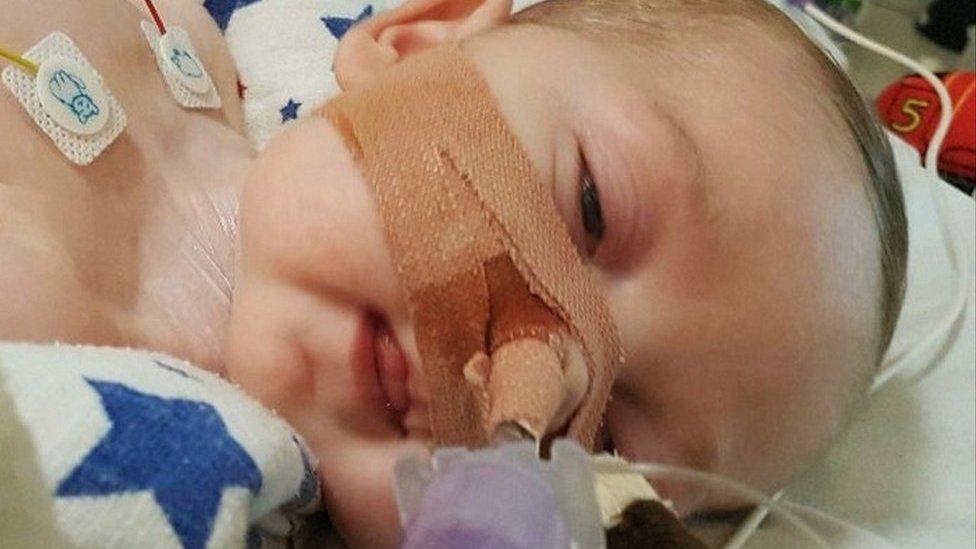
- Published12 June 2017
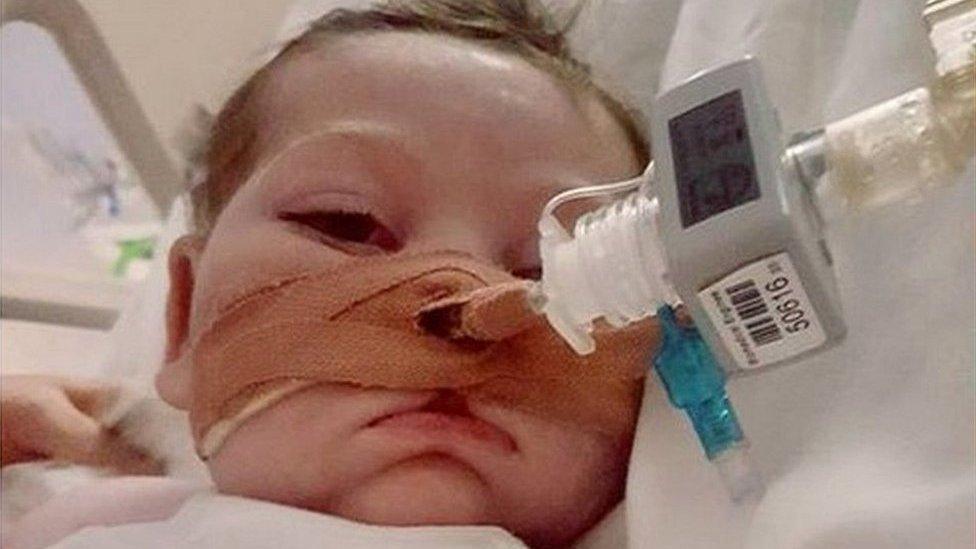
- Published8 June 2017
